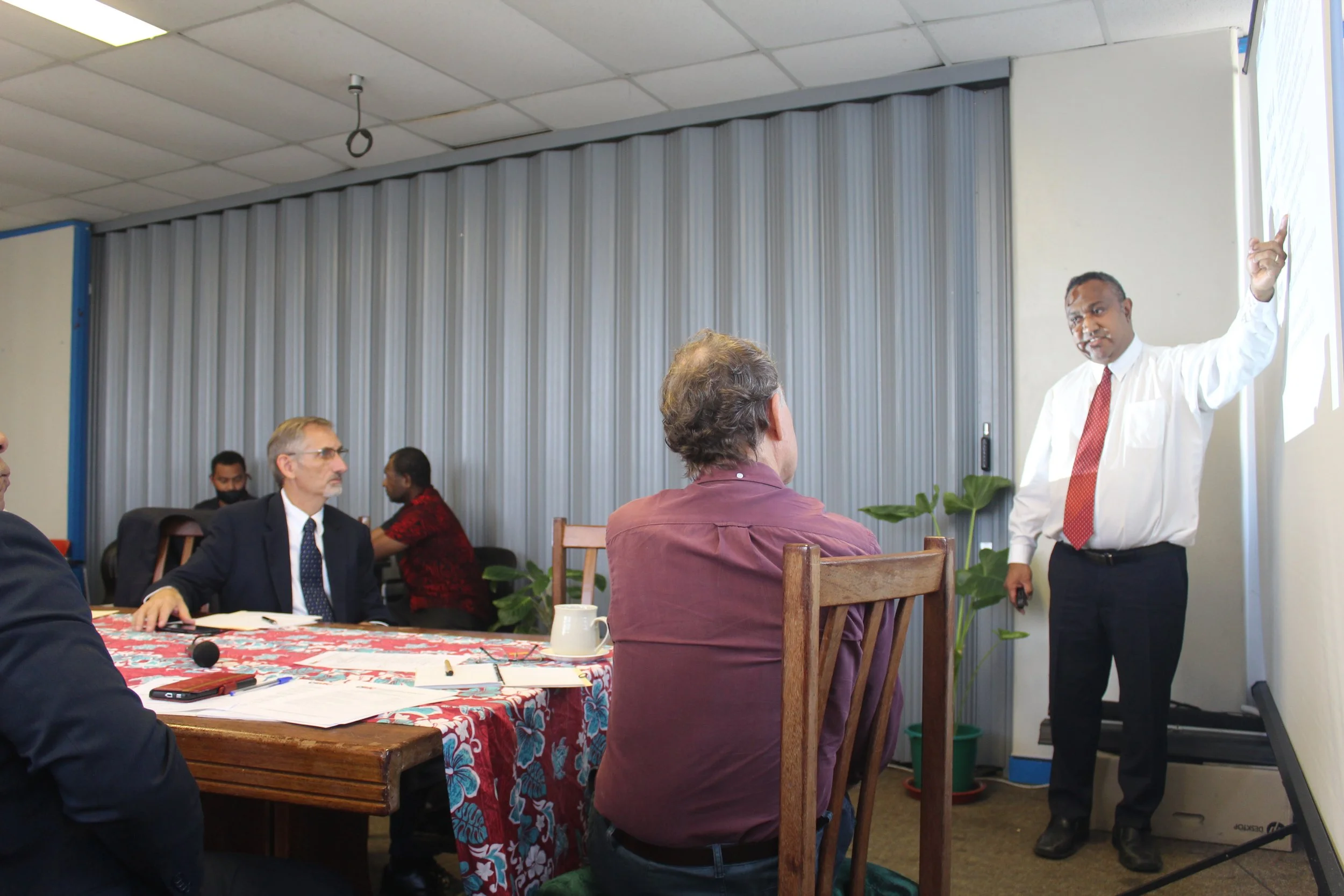
COUNCIL & SECTORAL COMMITTEE MEETINGS
-
The council is chaired by the Minister for National Planning & Monitoring.
The composition of the CIMC Council includes:
Chairperson
Minister for National Planning & Monitoring
Additional council members include key and senior representatives from government departments, the private sector, and non-government/civil society organizations.
The CIMC Council Database is currently being updated and will share the member’s names and portofolios here soon
-
Per the Terms of Referrence (TOR) the council have specific roles and responsibilities (The TOR is to be updated and to be done in the next council meeting )
Meet quarterly
Oversee and provide strategic direction to CIMC
-
The Council is to meet quarterly or as required. There has not been any Council Meeting since 2016 .A council meeting was planned last year November, however that meeting has now been postponed to the 24th of March 2026.
The Consultative Implementation & Monitoring Council (CIMC) in Papua New Guinea is a partnership between government, civil society, and the private sector. The council is chaired by the Minister for National Planning & Monitoring.
The composition of the CIMC Council includes:
Chairperson
Minister for National Planning & Monitoring
Additional council members include representatives from government departments, the private sector, and non-government/civil society organizations.
CIMC was created through an NEC Decision (DEC 46/98) consequently as an outcome of the Economic Summit in 1998 that identified the need to have a peak national body to bring all stakeholders together and hold key development dialogues concerning Papua New Guineas development. Since inception, CIMC continues to carry out its mandate as a key body to monitor the PNG Government policies and provide a consultative dialogue platform for citizens, private sectors, CSO and all stakeholders to participate in the government policy implementation dialogue at all levels of the government. The Institute of National Affairs (INA) under the leadership of Mr. Paul Barker, Executive Director is the administrator of CIMC.
The Minister for the Department of National Planning and Monitoring is the Chairman of CIMC Secretariat with the secretariat council members comprising of representatives from the state agencies, civil society organizations (CSOs) and the private sector. The CIMC Council Meeting is held biannually with the availability of the Chairman. A council meeting is yet to be scheduled and held for this calendar year.
The organization over the last twenty-six (26) years played a crucial role in ensuring transparency and accountability of government policies in working closely with relevant government sectors and all key stakeholders. CIMC as the complementary agency to the government made vital contributions to bridge policy and service delivery gaps. The establishment of the Family and Sexual Violence Action Committee (FSVAC) with FSVAC Program now subsumed under the National GBV Secretariat, Spearheading of the National Gender Strategy, the Informal Economy Program and Policy, the PNG National CSO Policy which was handed over to DNPM and the Department for Community Development and Religion (DfCDR), the establishment of Rural Airstrip Authority (RAA) are some key achievements to name a few of the many impacts since inception.
